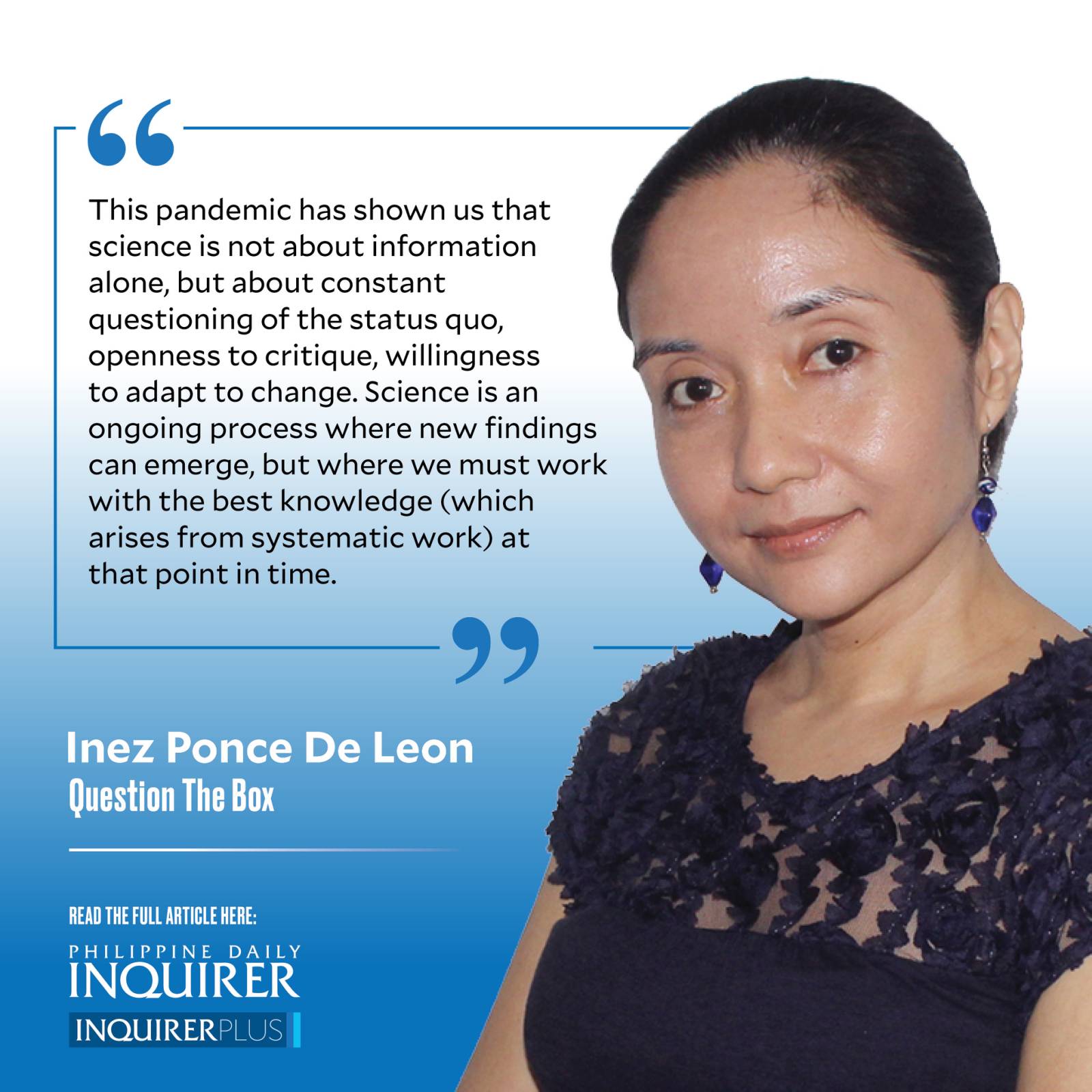Beyond mere dissemination

I recently exchanged ideas via Twitter with Manolo Quezon, whom I am honored to call my fellow columnist. The conversation ensued following his article on the Cargo Cult, which he prefaced by talking about how people tend to be, among others, stuck in their comfort zones and bound up in bureaucratic thinking. This shelter of convenience also sets them in their ways, prevents them from innovating, discourages them from working to achieve more or improve their lives.
There was much to unpack from his work, and my few sentences are a poor description of his essay. His insights nevertheless resonated with findings from my research in science communication. Some government offices, steeped in old habits, seem trapped in a Tarpaulin Cult: They believe that communicating simply means pushing out information to as many people as possible, in posters, infographics, or tarpaulins, as though merely posting the facts could spur people to action.
This pandemic, however, has shown us that science is not about information alone, but about constant questioning of the status quo, openness to critique, willingness to adapt to change. Science is an ongoing process where new findings can emerge, but where we must work with the best knowledge (which arises from systematic work) at that point in time.
This volatile, uncertain environment also means that communication must step away from the assumption of “one audience, one message.” The key is to investigate our many publics first, and then act on the data. I said as much to Manolo, who, with his expertise in government communication, knew how to sober me up with a good dose of reality: Filipinos might want information given to them retail, but government resources and infrastructure allow only for information provided wholesale—and it’s worked before in election campaigns.
I admit: Posters can win votes. In the case of natural hazards, nutrition, and health, however, my research shows a different story. People don’t stop to read tarps detailing evacuation routes, but they will respond when barangay tanod knock on their door and tell them that a storm is coming. They won’t always read infographics, but they’ll discuss how to work nutritious meals into their budget with barangay health workers. They won’t start packing their things to prepare for floods after they watch weather reports, but they’ll talk about the news with their neighbors, and then decide to evacuate together. The most interesting (disconcerting?) thing? These findings differ even among barangays in the same city.
I once shared these findings with a funding auditor, and then recommended workshops for barangay volunteers, who know their locales best. These volunteers could be trained in assessing and discussing (not disseminating) information.
“You’re a science communication expert, right?” the auditor scoffed. “Just design informational posters!”
The auditor was simply reflecting the comfort zone of the government: Pound everyone with information regardless of the issue. Expect people to obey. Get frustrated when they don’t. Add official’s name to printed communication materials to get extra campaign mileage. Repeat.
I could not give in to the request, not when the data was telling me otherwise: When it comes to some problems, we are a people of conversation. And we, too, are a diverse people that must first be understood.
Reducing science communication to information dissemination is a disservice to people. People are neither blank slates to be written on nor empty pails to be filled. They don’t need more posters or infographics.
We need more systematic science communication research. Then, we abandon what we believe to be intuitive, question our assumptions, and act on what the data says—the way that science trained us.
Above all, we need a government that listens to specific groups, welcomes their diversity of concerns and identities—and understands that they are people, and not merely votes. In a world where bureaucrats are trapped in cults, it truly is radical to love and listen first.
I will give a talk on new research avenues for science communication from 4:30 p.m. to 6 p.m. on Nov. 19, via Zoom, as part of the Ateneo Department of Communication’s seminar series. You can register for free at https://bit.ly/LSCommDeptSeminarSeries2021
—————-
iponcedeleon@ateneo.edu




















